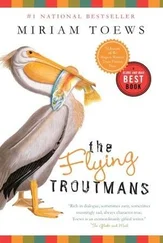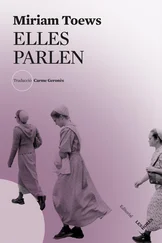But then I imagined him on a day when shitty things weren’t happening and he’d be feeling his usual mystified self and go to the dump and there he would see that little piece of paper with the schedule on it and it would bring him to his knees. Just destroy him for a minute or two, and he’d probably pick it up and wipe whatever seagull crap there was on it and straighten it out with the side of his hand and bring it back to the kitchen bulletin board and arrange it on there so you’d know it was the centrepiece of his life.
But for now, he was tripping ’cause our house had been shot at and things were as they should be, as he had suspected they had been all along, so he could relax and get rid of stuff that was keeping him down. He kept on saying corny things even while bits of glass dropped onto the living-room carpet and I glared at him stupidly. I don’t know why. It’s an act. It’s a thing we do when something strange has happened and we don’t know what to say about it. It’s like we play these conventional roles of idiot dad and rebellious teenager even though we’re way beyond that — we’re more like two mental patients just getting through another day. It’s like he’s trying to dynamite his way through a mountain of so-called teenage contempt by saying goofy things knowingly in the hope that I’ll grant him mercy for identifying his own shortcomings before I can. It’s just an old sitcom script we fall back on. We have no idea how to act.
Bye, I said.
Have fun, he said. Be good.
Gotta make up your mind, I answered back, because he expected me to.
After Tash left, my mom’s church singing got quieter and my dad’s got a little louder. I developed insomnia. Nightmares of Tash screaming while she burned, a hand reaching out for help, my name on her lips, her face melting while the screaming echoed on and on and on. I’d wake up at night to find Ray gone, out on one of his nocturnal missions, so named by Tash before she took off, and my mom lying on the couch in the living room, reading.
She’d make room for me beside her and I’d talk to her about Tash and how I was so afraid she was going to go to hell. Isn’t she? I’d ask my mom. There were pauses. I don’t know what I wanted her to say. Either one, yes or no, was problematic. Isn’t she? I’d ask.
My mom said: That’s not for us to say, Nomi.
But isn’t she? I’d ask.
Well, said my mom. It won’t come to that, I’m sure.
But it could come to that, right? I asked her. That Tash would go to hell? That she’d be right there in the middle of hell, all alone and burning to death forever while Satan laughed and God cried and we were in heaven together without her?
Well, said my mom. I really don’t — and I’d usually cut her off with wild demands like: Tell me the truth! Until she’d say what she always said: The truth is I don’t know, Nomi. Which left me with nothing. And that it was a bad thing. At least I felt that way at the time.
Oh, the shit was coming down. Things were falling apart. Our family was on the skids, and the truth was I don’t know. My mom started getting twitchy around the house. Slamming things and asking me if I was okay, when all I’d be doing was sitting there and peeling a banana or something. She quit her job at the library, but kept going to church.
Then she got this other job cleaning the leg wound of Sheridan Klippenstein’s grandma, a very old woman who lived alone and refused to move into the Rest Haven. Sometimes, if there was nothing else to do, I’d go with her. She changed the dressings on Mrs. Klippenstein’s leg and I sat on the couch and watched.
Mrs. Klippenstein’s left leg was a thing of dark beauty. Large and shiny purple, with scales. She had an open sore, just below the knee, that would never heal. It oozed night and day, like Vesuvius, and her life revolved around its maintenance. My mom liked to help and really seemed to enjoy working with gauze and tape.
Sometimes I stood beside her and held things for her while she dressed Mrs. Klippenstein’s sore. I would stare at the top of Mrs. Klippenstein’s head, intrigued by a milky swirl of white scalp where her hair had fallen out. I could see tiny follicles that looked like goosebumps.
Her English wasn’t very good. One time I told her she was lucky she didn’t have to go to school (we’d been discussing my assignments) and she grabbed my arm and said I’ll eat your heart out. She said things like slice me open a bun and throw me down the stairs a face cloth.
Trudie and I would try not to laugh.
Mrs. Klippenstein would force me to eat Scotch Mints and then tell me stories about her childhood in Russia, the golden dream of home. She told me her father owned three hundred chickens and that they had one hundred and eighty-six trees on their property. They also had an eagle that her father had bought one day from the black market. The eagle had a wingspan of eleven and a half feet. It would fight with dogs and men and they kept it tethered to a post in the yard.
Never marry a man out of pity, Nomi, she told me. Her husband had been excommunicated for something and afterwards, like a lot of the ghost people, had lived in a little shack next to the main house while Mrs. Klippenstein took care of the children and the farm. He became The Swearing Man.
I vaguely remembered him from when I was a little kid. He rode his bike around town, in a suit and tie, and swore. Eventually, he died. When he was a young man he had been kind and just. He taught his children to stand on each other’s shoulders and form a human pyramid. He had a wonderful singing voice, was quick to laugh, especially at his own foibles, and never took offence. Those are all Mrs. Klippenstein’s words. I loved the way she described him.
She told me that every night she lay down next to him and whispered in his ear: You are almost perfect.
I can’t remember why he was excommunicated and I never asked. Maybe he took the fall for someone in his family. That happens. My mom did other things for Mrs. Klippenstein too, sometimes. Errands, housework, a load of laundry now and again. She spent a lot of time there. I guess it was distracting.
During that time, The Mouth came by to pray with us, and my dad began to spend his evenings sitting in the yellow lawn chair and staring at the highway, or down in the basement with his isotope material, finding comfort in the stability that’s created from decay.
What we have feared has come to pass, said The Mouth.
What? What? I’d ask my mom, after he left. What are we fearing? What has happened?
One day my mother told me that Tash had become an atheist. My mom had known about it long before Tash had actually left town. Apparently they’d talked about it at length. The Mouth had only recently heard about it — through the grapevine.
Oh my God, I whispered. My mom said Nomi, you don’t know what an atheist is. She told me Tash had stopped believing in God. No, I whispered. Yes, said my mom. I couldn’t fathom it. I didn’t get it. That fucking library card, man. Almost every night I’d crawl into bed with my mother even though I was already thirteen years old and she’d whisper to my dad: Nomi’s here, honey, go sleep in Tash’s room. And he’d get up and lumber out of the room, leaving a nice warm hole in the bed for me to curl up in. We didn’t have to talk about it any more. There was nothing to talk about.
I might move to Montreal, said Travis. I asked him what he meant by that. We were sitting on Abe’s Hill staring at the city lights.
Nothing, he said. Just that I might move to Montreal.
But why? I asked. When?
In the fall, he said, if I can make enough money.
Well, have fun, I said. Write. He said I could come with him but he didn’t know what he was talking about. Right? he said, poking me in the side with his guitar.
Читать дальше












